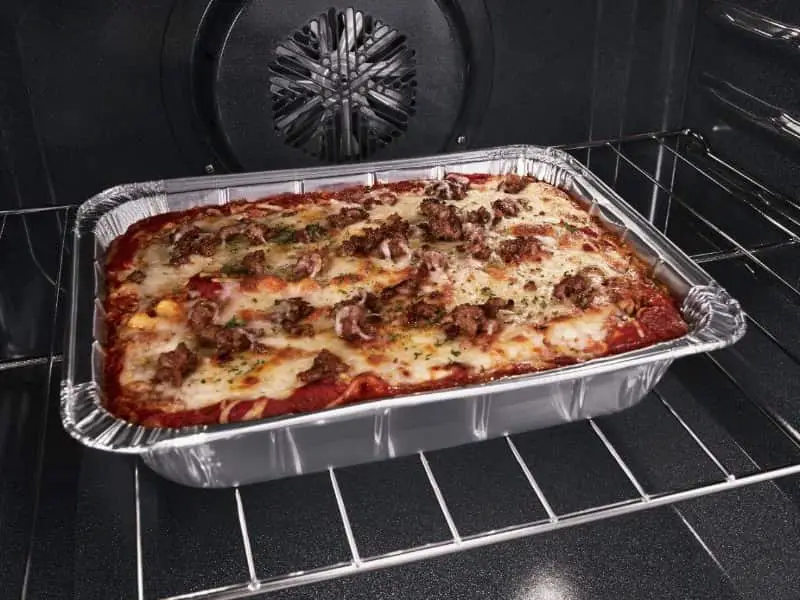Is aluminum microwave safe? Aluminum is a metal that can be found in many household items, including pots and pans. It’s also used as an ingredient in some food products.
Aluminum is a great conductor of heat. It also doesn’t react chemically with food, meaning it won’t change the taste or texture. What’s more, aluminum has been used for decades to create cookware – even pots and pans you find in your kitchen are made from aluminum!
The safety of using aluminum in microwaves has been debated for years, but it’s important to know that there are no known health risks associated with cooking or heating foods containing aluminum at home.
If you’re still worried about the safety of your family, then this article is for you. We will provide you with our findings on whether or not the aluminum is safe to use in the microwave. Check out!
Table of Contents
How Does A Microwave Work?
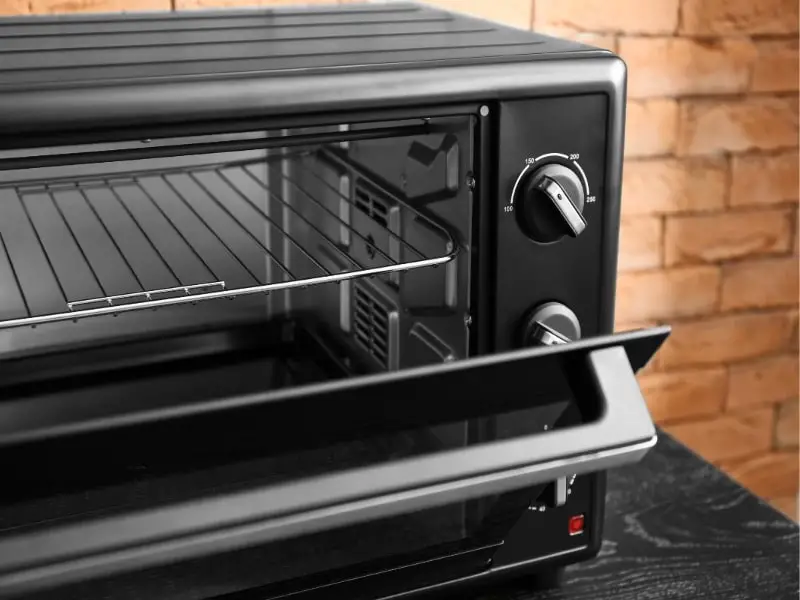
Microwaves are a form of electromagnetic radiation which is transmitted by a microwave antenna into the interior of the dish containing the food to be cooked. This microwave radiation interacts with molecules in food, agitating them and producing heat which cooks the food.
Microwaves are electromagnetic waves emitted by the microwave oven that travel at the speed of light. They create molecular friction with food molecules in order to make them vibrate and emit heat, which cooks the food. This is known as dielectric heating.
Dielectric simply means insulator. A microwave oven must use glass or ceramic materials for its interior walls to act as insulation so the microwaves can bounce around in the oven with minimal energy loss.
Using plastic in your microwave leaves more energy losses, which requires the oven to run longer than necessary, resulting in higher energy bills. At the very least, it can melt or catch fire. If you own an older model oven that’s still made with plastic parts, stop using it immediately.
Do microwaves leak radiation? Yes and no. They do emit microwaves while running but not nearly enough to cause harm to humans or animals.
However, there is a myth that microwaves leak radiation when they’re not running and you would be exposed to harmful rays simply by standing in front of the microwave oven. This is completely false. Countertop microwaves do not emit any dangerous radiation when turned off.
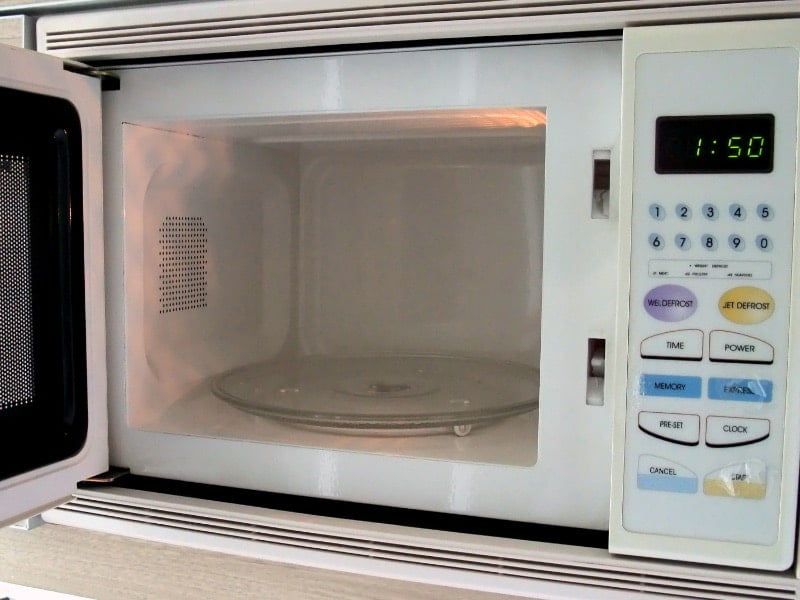
Do Microwave Ovens Have Recalled Parts? Yes, there have been recalled on certain parts of microwaves. It is important to make sure you check and see if your microwave has any recall issues and take care of it as soon as possible.
Do I Have To Worry About Microwave Radiation Exposure While Using My Microwave Oven? In short, no. There is such a thing as microwave radiation and it’s the reason your microwave oven works, but it’s much too weak to cause any harm to humans.
While microwaves themselves are actually yet another form of non-ionizing radiation (the same kind emitted by WiFi routers and cellphones) that poses absolutely no risk in terms of causing damage to cellular tissue, they are too weak to do any damage.
Unless you’re heating up metal in your microwave – which is something you shouldn’t be doing in the first place- then there’s no risk of exposure.
Finally, it’s worth remembering that microwaves only work by interacting with water molecules in food and not by heating up the food itself. Do not microwave non-food items, including metal spoons, forks, knives, or foil in order to avoid electric shock and possible fires.
Is Aluminum Microwave Safe?

The answer to the question “Is Aluminum Microwave Safe?” is a hotly debated subject among many technological, scientific, and health organizations. Despite the conflicting opinions on this matter, a majority of government agencies agree that aluminum can now be used safely in microwave ovens.
There are claims that have been made that cooking with aluminum increases the risk of Alzheimer’s disease, but these claims have been dispelled as either inconclusive or misleading.
Many of these claims have been generated by the same people who promote the use of aluminum cookware, so it is difficult to determine if there was any original thought or evidence on their part.
There are some studies that have found a link between Alzheimer’s disease and cooking with aluminum containers, but most scientists feel that these results are not conclusive.
A study published in the Journal of American Medical Association found that the risk for this disease was actually much lower among those who cooked with aluminum pots or pans.
The researchers theorized that this could be because the Alzheimer’s sufferers were not using their cookware correctly, and did not allow it to cool completely before transferring its contents to another container.
If you are concerned about the safety of aluminum and how it affects your health, there’s no real need to avoid this material. It is true that eating high levels of aluminum can cause some health problems.
But these effects only occur in those who suffer from kidney failure or other diseases that already require them to restrict their water intake. Although cooking with aluminum is not a good idea for those who have to limit their aluminum intake, this practice will not affect the vast majority of people.
You can also reduce your exposure to aluminum by avoiding processed foods, as these products are likely to contain high levels of metal. Drinking from aluminum cans or using alum-containing antiperspirants can cause you to ingest some of this metal as well, but the FDA has deemed these levels safe.
One study from 2008 has shown that adults with higher levels of aluminum in their systems showed increased levels of various markers for oxidative stress and inflammation, but the study does not establish a causal relationship between cancer and breast cancer.
While there is a link between aluminum and Alzheimer’s disease, the study did not find any connection between this metal and Parkinson’s disease. The purported link between Alzheimer’s disease and cooking with aluminum is not a concern for those who do not suffer from kidney failure.
There are many other reasons to avoid processed foods, especially those that contain high levels of chemicals and sodium. If you’re worried about aluminum, simply use an alternative material when cooking, such as stainless steel or cast iron. Never leave your food in a metal container inside of a microwave oven for long periods of time, no matter what type of cookware it is made from.
Health Issues Of Microwaving Aluminum
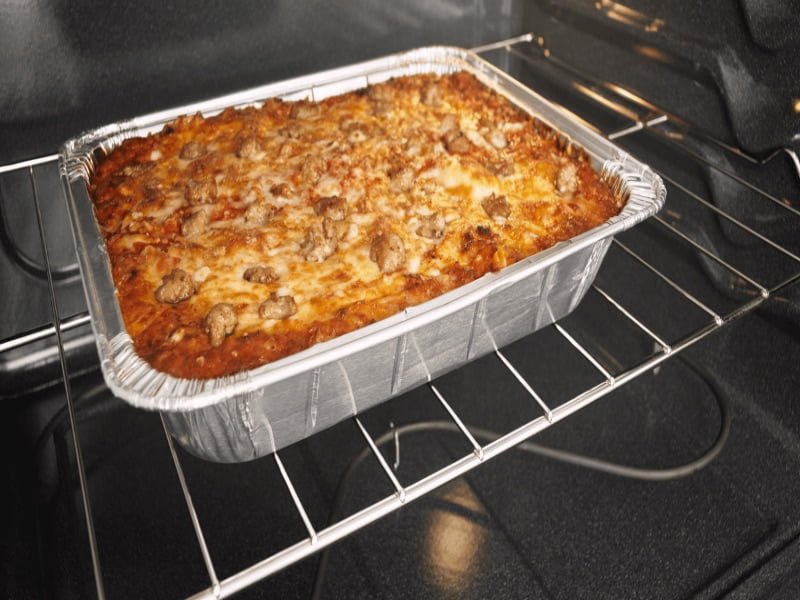
What are the health issues of microwaving aluminum? This is a difficult question to answer because there are many studies that show microwaving aluminum can potentially cause health problems. There are also studies that show that microwaving aluminum has no effect on the human body and can be done safely.
The bottom line is that there are a number of studies that show that microwaving aluminum causes health issues for many individuals. Some people have claimed to experience allergic reactions after eating microwaved aluminum.
Others have claimed that microwaving aluminum causes their hands and fingernails to become discolored, as well as rashes and other skin irritations. There is also some evidence that microwaving aluminum can cause serious health conditions in the future.
Some of this research has been cited by reputable sources such as Michael H. Joseph, who was a scientist and inventor. He started researching the effects of microwaved aluminum when he noticed that many individuals were experiencing skin irritations after eating microwaveable foods that contained aluminum.
In one particular case, a woman claimed that the microwaving of aluminum caused her hands to become discolored and dry. In another example, a man claimed that his cat was seriously ill after eating from a bowl containing microwaved aluminum foil.
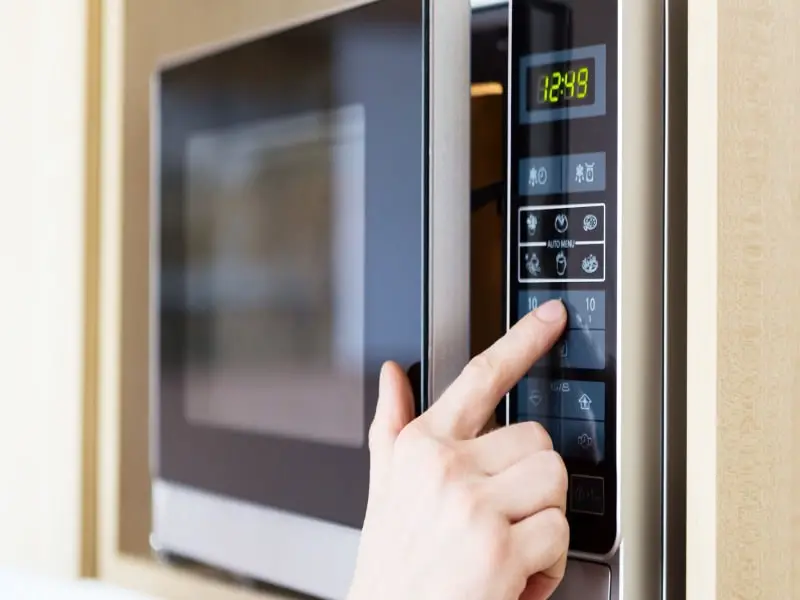
In Michael Joseph’s research, he discovered a number of studies that linked the consumption of microwaved aluminum to various health conditions such as:
The formation of aluminum dendrites. These are microscopic, needle-like crystals that accumulate in the human body and can cause great damage to cells and tissues.
This is a condition that has been seen in laboratory animals exposed to microwaved aluminum over time. There have also been studies conducted on workers exposed to high levels of aluminum in the process of welding.
Creation of free radicals within the body. Free radicals are atoms or groups of atoms, which are highly reactive due to having an odd number of electrons. This means that they are looking for other electrons to replace their own with. If these free radicals enter your cells, they can cause damage to the DNA.
One study conducted in 2001 showed that microwaving produced no changes to the aluminum, but when it was heated on a gas stove or exposed to sunlight (free radical generators), it changed into toxic forms which then caused sickness and disease.
There is no evidence that microwaving food away from metal results in any significant leaching of aluminum. Aluminum is a common additive to processed foods, however, and it’s unlikely that microwaving would result in any more leaching than other forms of cooking.
Microwaves cook food by causing water molecules to vibrate. The resulting friction causes the temperature of the food and water to rise. The aluminum reacts with the water and produces hydrogen gas.
It causes bubbles in the food and can give it a “tinny” taste if too much is used. Water vapor also forms when microwaving food, but this should not cause any change in the properties of aluminum.
Safety Tips For Microwaving Aluminum
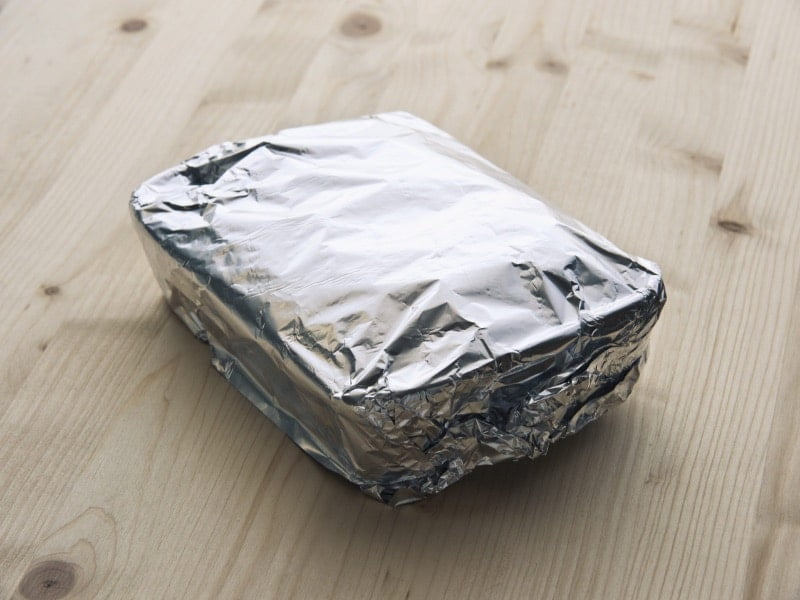
1. Make sure the object is not too large for the microwave oven. It should fit comfortably in-between the two antennas on top of the oven and should be no taller than 4 inches from base to peak. The metal part of a measuring cup or soup ladle makes good choices for small objects that will heat quickly.
2. Do not heat containers with a metallic color inside a microwave oven because they may cause a fire hazard when heated due to their composition being more conductive.
This includes any plastics that have been recycled with metals such as tin cans, aluminum foil wrappings, pie plates covered with aluminum foil, etc.), goldfish cans (which are made from steel), and other items which might have copper wire insulation around the metal, etc.
3. Do not heat containers that have insulation around the metal such as plastic water bottles (including glass bottles with a plastic waxy-looking coating on the inside). Any metallic encased object like this may become hot enough to burn the skin if touched during microwaving and may damage the oven.
If you need to heat something in a plastic bottle, check to see if there is metal in the cap. If it’s encased, then perhaps you could use a different container in the microwave oven.
4. Do not heat water in a cup with a metallic-looking sheen inside of it because this may cause arcing or sparking when microwaving and cause damage to the oven or cause skin burns to the person who removes it from the microwave oven.
5. If you are unsure about whether an aluminum object is safe to heat, do not heat it in a microwave oven. Use another method of heating such as in the oven at moderate temperatures, on top of a stove, or in hot oil.
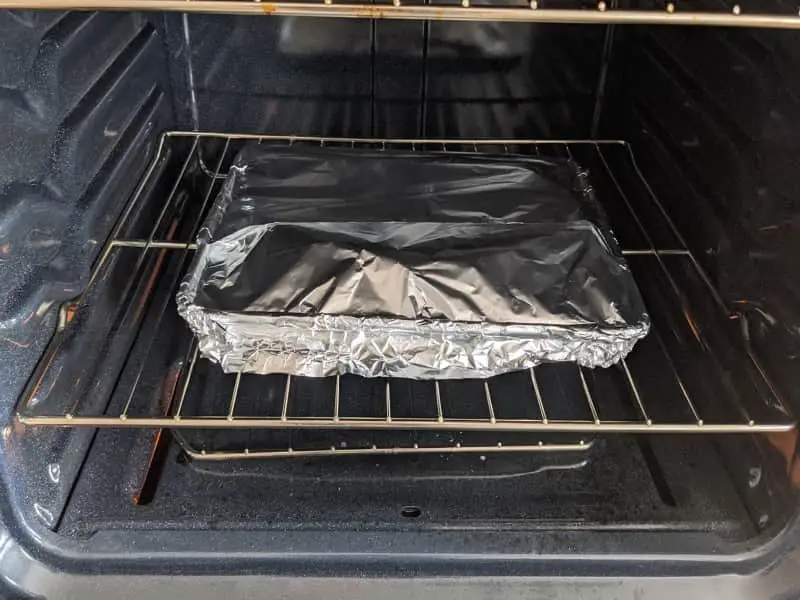
6. If you are heating food in a microwave oven, do not put the aluminum object on top of or inside the food. The microwaves may bounce off of it and cause damage to the oven.
7. It is OK to use aluminum foil as long as it does not have any torn holes in it which will allow microwaves to escape. If it does, this may cause arcing or sparking in the oven and damage it.
8. Do not use aluminum foil to line the floor of a microwave oven while cooking food because this will shield some of the microwaves which can cause arcing or sparking if they are reflected off of other objects inside the oven cavity.
9. If you remove an aluminum object from a microwave oven after it has been in there for more than five minutes, do not touch it with your bare hand.
Let it cool down first because the object may be too hot to touch comfortably and could cause skin burn if touched while still warm (or even after it is completely cooled).
If you absolutely must handle an aluminum object like this without touching the sides with your hands, use a plastic utensil or food handler gloves to remove it.
10. Aluminum foil is not recommended for wrapping food that will be heated in a microwave oven because some of the metallic ions may migrate into the food during microwaving and cause damage to your health. It’s better to use wax paper or plastic wrap which does not have these types of contaminants.
Some of the microwaves are reflected upwards from the floor of the oven by tinfoil or cooking utensils so please try to use ceramic, glass, or pottery containers if you regularly heat things in your microwave. Although they may be more expensive, you can still find them at thrift stores for very reasonable prices.
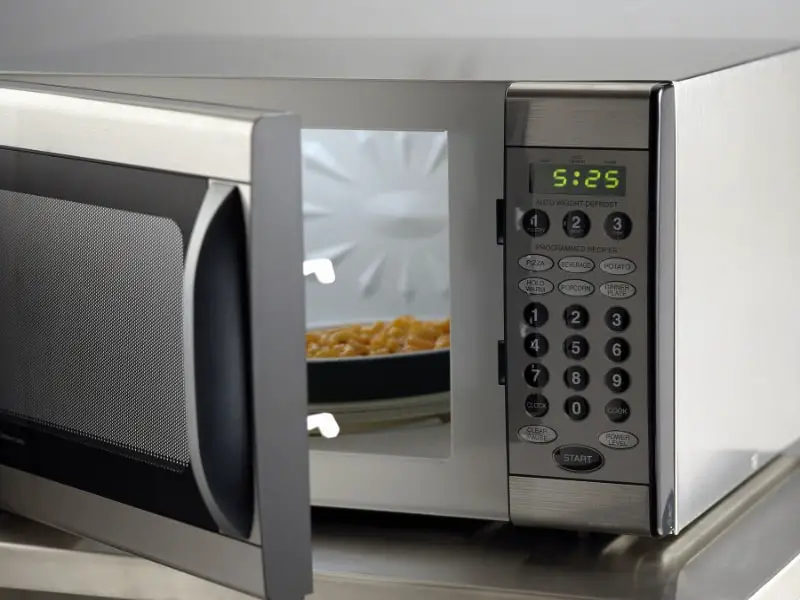
Ways to safely heat food in an aluminum tray:
Heat small quantities of food in a pan with the aluminum tray inserted. This method heats the aluminum tray as well as the food. In many cases, it is faster and less messy because you only have to clean one pan or pot.
Can I heat food in an aluminum tray? Yes, but only disposable aluminum trays are recommended. They are coated with a thin layer of enamel to prevent the aluminum from transferring into your food.
This coating prevents any health risks that could be caused by eating old aluminum. Your best bet is to go for disposable containers since they come with a guarantee and are made to be used only once.
Since aluminum is not safe to eat, if you heat your food in an aluminum tray, make sure to remove the enamel coating first. Thoroughly clean the pan before using it again for any other purpose. Note that it takes around half an hour for the coating to wear off.
Aluminum is safe to put in the oven, but again only if it has been enameled. However for long periods of high temperatures, aluminum tends to eventually give out and release dangerous gases so this method should be viewed as a last resort. Another reason why an aluminum tray is not meant for cooking food is that they are not safe to use with acidic foods.
Some people might say that they have heated food in aluminum trays without ill effects, but this does not mean that it is healthy. Aluminum has made headlines recently due to the long-term health risks associated with its build-up. This is especially true for seniors and athletes who tend to sweat more.
It is recommended to go for disposable trays rather than aluminum ware. Make sure you buy them new and clean them thoroughly with hot water, vinegar (optional), and baking soda (optional).
One of the safest methods to use aluminum without worrying about any toxic residue is to line it with parchment paper or wax paper before filling it up with food.
You could also opt to line the aluminum tray with plastic wrap but make sure you remove it before putting it in the microwave oven. The only other safe metal that can be used to heat food is stainless steel. In most cases, if you take care of your pans, they should last a lifetime without any problems.
FAQs

Does metal affect the taste of food?
No. Metal has no effect on the flavor of your meal in a microwave because microwaves use radio waves to make water molecules vibrate, creating heat in the food without heating up any metal in our kitchen.
Can I use aluminum foil in the oven or broiler?
No. You should never use aluminum foil in the oven or broiler because it blocks access to microwaves and could cause a fire hazard.
Using aluminum foil in an oven or broiler can damage the temperate-sensitive inner liner which allows it to withstand high heat, resulting in a fire hazard.
Aluminum foil should only be used under low-temperature cooking methods like baking in the oven or steaming in a covered pot over medium heat.
What are the dangers of cooking with aluminum?
Aluminum can be harmful because it is known to contribute to Alzheimer’s disease. Aluminum has also been linked to cancer. Aluminum pots often have an aluminum layer on the inside, which leaches into your food when you cook with them.
It’s not a good idea to use aluminum foil around foods that contain acids or tomatoes as they can cause a chemical reaction that releases aluminum into your food.
Why should I not use tin foil if it is still safe to use metal utensils, like forks or knives?
There are two major concerns with using tin foil in the microwave. The first is that aluminum can react with food and create an unappetizing taste and flavor, and the second is that tin foil may contain lead and eventually leach into food.
Metal utensils like forks and knives are safe to use in a microwave because they do not contain any paint or other coatings that could come off onto your food.
How can I make sure my food doesn’t taste like metal when using an aluminum dish?
The best way to assure that your food doesn’t taste like metal is to use a gentle cooking method such as steaming, braising, boiling, stewing, or simmering. If you must use a high heat method such as grilling or stir-frying, be sure to add a liquid and lots of flavorings and spices that mask any metallic taste.
Conclusion
Aluminum is a very popular metal in the kitchen. It lasts for decades, which makes it an excellent choice if you want durable cookware that will last through generations of use.
So, is aluminum microwave safe? There are many proofs that Aluminum is safe for microwaving. If you’re looking to purchase new pans or pots for your kitchen, consider all the benefits before buying any one type of metal so that your purchase will fit your needs perfectly!

